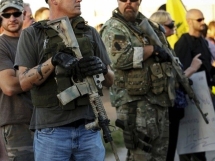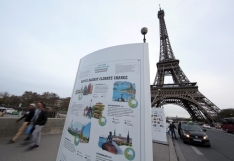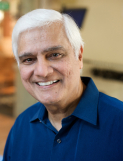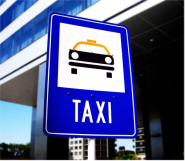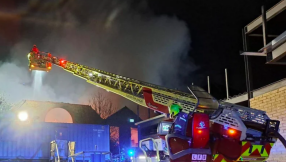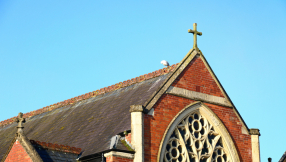French police have seized hundreds of weapons and Islamic jihadist documents in raids conducted on mosques, some of which have been shut down on grounds of radicalisation, since the Nov. 13 Paris attacks.
On Wednesday, French authorities said they shut down three mosques as part of the crackdown on extremist activities, USA Today reported.
"The three mosques as considered pseudo-religious associations," said French Interior Minister Bernard Cazaneuve.
Cazaneuve said one of the mosques, 35 km east of Paris in Lagny-sur-marne, was targeted by raids early Wednesday, with police seizing a 9 mm revolver, a computer hard disc and jihadist propaganda, according to the Associated Press.
Police have seized 334 weapons since the Nov. 13 attacks, Cazeneuve added.
He said the mosque, which was set up in 2010 and run by Mohamed Hammoumi, also had a non-authorised Quranic school.
One person was placed in custody following the raids, with 22 others banned from leaving France. Nine others were put under house arrest, reports said.
The two other mosques, in Lyon and Gennevilliers in the Paris region, were shut down last week amid a state of emergency.
The France government said the raids were conducted under the prolonged state of emergency instituted after the terror attacks in the capital city that left 130 people dead. ISIS claimed responsibility for the attacks.
The state of emergency, which was passed by parliament, is in effect until February and allows authorities wide latitude in conducting searches, making arrests and banning public gatherings.
The interior minister defended such tough measures, saying, "It is the terrorism that is the threat to freedom, not the state of emergency."
Since last month's bombings, he said French authorities have conducted 2,235 searches, made 263 arrests and seized 334 weapons, including 34 military-grade weapons.
Meanwhile, Evan Kohlmann, an analyst at the New York-based threat intelligence firm Flashpoint, said although there is a growing trend of radicals taking over mosques not only in Europe but even in the United States, this is not likely to happen in the U.S.
"Anyone in this country that gets the least reputation for being a known radicaliser is immediately investigated by the FBI," Kohlmann told the paper. "People with connections to extremists are investigated and removed from their positions."
Zuhdi Jasser, president of the American Islamic Forum for Democracy said one of the differences with Europe is that U.S. law does not prohibit hate speech, unless such speech calls for imminent violence.
If there are weapons and obvious inclination to violence, Jasser said, the Department of Homeland Security can investigate.
"Europe has a bigger problem with radical Islam because many of their countries have hate speech laws, which pushes these groups underground, which makes monitoring them much more difficult," he said.
Kohlmann said radicalisation has not been the trend in U.S. mosques, even where they've had extremist clerics, such as Anwar al-Awlaki, who preached in Falls Church, Virginia, from 2001 to 2002. Awlaki later moved to his parents' homeland in Yemen, where he became a leader of al-Qaeda in the Arabian Peninsula. He was killed in 2010 in a U.S. drone strike, USA Today said.










